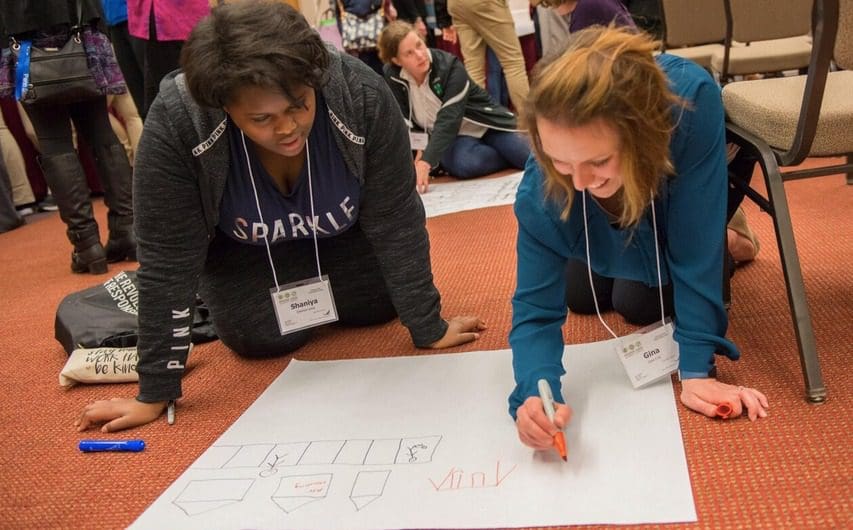
The leading justice organization–Wellbeing In the Nation Network (WIN) – hosted an interactive and engaging virtual series of events themed “How Might We Sharpen Movement Strategy For Lasting Change?” late last month. Virtual sessions addressed ways to achieve racial justice, an equitable well-being economy, and the right to voice and vote for everyone.
WIN Week featured the nation’s foremost social justice change and thought leaders across sectors committed to advancing intergenerational health and well-being, and equity across the country. To address these unprecedented challenges, WIN Week’s design was rooted in community, building non-traditional bridges, and changing the narrative, system, and structures to advance intergenerational well-being and equity.
Speakers and attendees discussed ways to change the narrative, system, and structures to advance racial justice for everyone. Additionally, attendees learned from and networked with key leaders across multiple sectors who delivered innovative solutions to drive real change and create a more equitable and well-being society.
All WIN members are committed to dismantling oppressive policies of structural racism and other inequities and creating the vital conditions everyone needs to thrive. “There is strength in collaborating with like-minded organizations to pool our collective resources. More than ever, we need to act, organize, and build equitable systems to effectively combat this divisive political and economic climate,” noted Abeni Bloodworth, co-founder and chief executive officer of chromatic black™, which serves on the Core Implementation Team of the WIN Network. “
“Those closest to the problems are likely to be the most resourceful in creating the solutions,” said Somava Saha, founder of Well-being and Equity (WE) in the World and executive lead of the WIN Network. “By restoring agency and voice to communities which have been marginalized, by looking to our roots and history, we are gaining fresh perspectives and solutions to addressing what previously seemed like intractable challenges.”
Actionable solutions to implement in communities across the nation and around the globe are listed below.
- Building Equitable Well-Being Economies – Indigenous practices are at the root of shifting current economies and building ones rooted in intergenerational well-being.
For too long, we have prioritized extractive business practices that are unsustainable and create harm to people and the planet. Laina Raveendran-Greene, founder, Angels of Impact, is building a restorative well-being economy by investing in Indigenous women and women of color social entrepreneurs.
Through this organization’s Women Impacting Social Enterprise (WISE) fellowship, Ms. Raveendran-Greene provides Indigenous women and women of color social entrepreneurs funding for their social enterprise to:
1) help women earn an income, and
2) re-invest their earnings in their communities
Angels of Impact supports “missing middle” women and Indigenous-led community-based enterprises that are too big for microfinance and too small for most impact investors. These enterprises aggregate the work of other women or women-led micro-enterprises and add value in a way that helps end poverty sustainably and systemically.
By investing in these emerging social enterprises, we invest in growing women leaders who in turn help to build thriving families and communities that create a well-being economy.
- Indigenous communities who have experienced some of the greatest harm have identified ways to heal intergenerational trauma by reclaiming Indigenous practices.
Dr. Ruby Gibson, executive director, and Kara Big Crow, director, Freedom Lodge and The Black Hills Historical Trauma Research & Recovery Center, shared their deep work in healing generational trauma leading the way with “The Future of Native Wellness(™).”
This organization incorporates Somatic Archaeology©, which centers on“unearthing in the human body those remains and artifacts of our familial, ancestral, and spiritual lineage in order to uncover our myths and remember our stories for personal and planetary evolution.” (Source: Freedom Lodge and The Black Hills Historical Trauma and Research & Recovery Center).
As one example, Pine Ridge Reservation was described by a former Surgeon General as the deadliest place in the nation to grow up: more than 500 youth and thousands of adults died by suicide in one year, fell prey to drug and alcohol addiction, teen pregnancy, and poor chronic disease outcomes, driven by trauma from colonial practices such as boarding schools.
By restoring Indigenous healing practices to the schools and community, Freedom Lodge and its partner Oceti Wakan are interrupting the cycle of trauma and addiction and creating post-traumatic resilience and growth.
- Using Data for Power in Boston, MA
Ramandeep Josen, Stantec, works with the city of Boston to allocate dollars to repair sidewalks. Research found a system that privileged those who trusted the government to meet their needs–the wealthy and predominantly white neighborhoods–despite these being the least walked neighborhoods in the city.
Those who walked the most and needed sidewalks to get to jobs and school every day didn’t feel they would get help if needed–and had a reason for this mistrust. By engaging the community where sidewalks were broken, mapping where the greatest traffic was and how that mapped to social vulnerability, they flipped the process of allocating ten million of repair dollars to prioritize neighborhoods and communities that needed the repairs the most.
This helped to rebuild trust with the community and used data to shift the balance of power to create an equitable distribution of resources for everyone. During six years, they watched as communities built trust and became engaged in their communities.
- Voters’ rights and the relevance of Fannie Lou Hamer’s story are paramount.
Fannie Lou Hamer was a Black sharecropper in Mississippi fed up with Jim Crow, literacy tests, poll taxes, violence, intimidation, racism, and state-sanctioned terror. Still, Hamer remained steadfast in her determination to vote and teach Blacks and other marginalized groups to do the same.